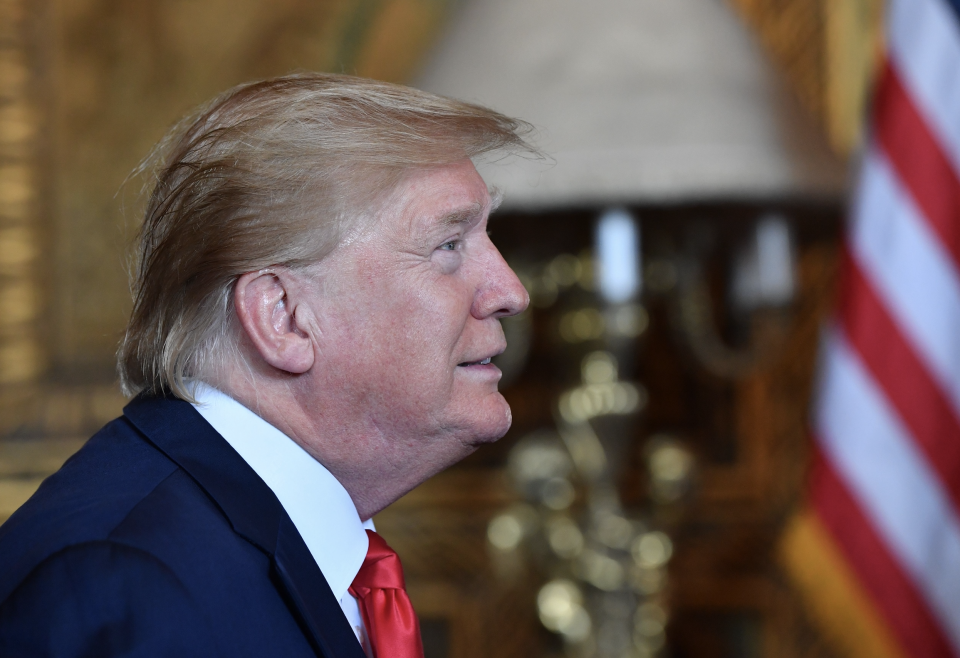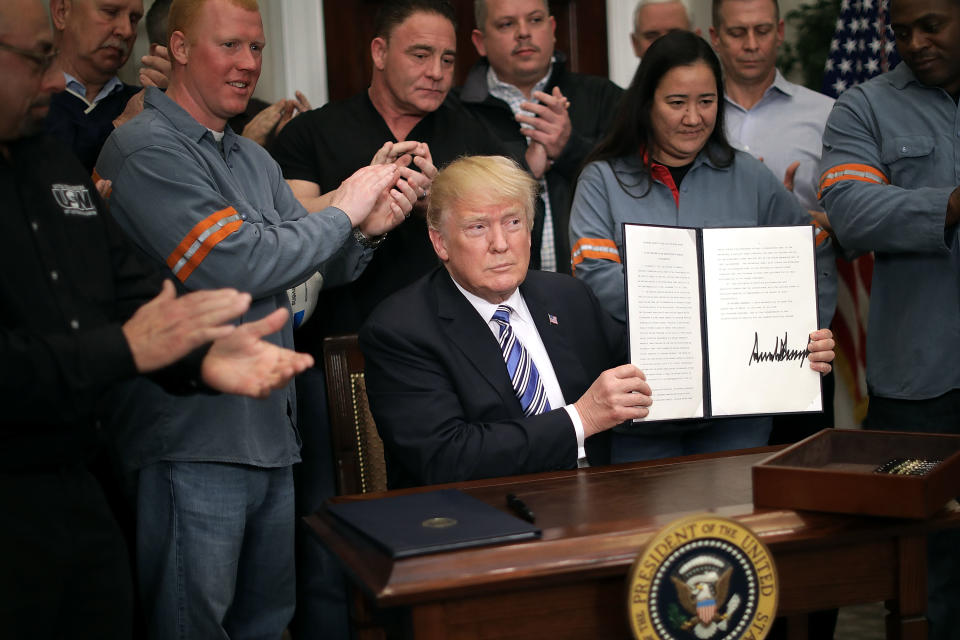Confirmed: American businesses and consumers are paying 'approximately 100%' of Trump tariff costs
President Trump made over 100 claims about China and tariffs in 2019, stating that Beijing was paying “tremendous amounts of tariffs.” However, new research from the National Bureau of Economic Research (NBER) found the opposite.
“U.S. tariffs continue to be almost entirely borne by U.S. firms and consumers,” the NBER working paper stated. “Similarly, we also find that the substantial redirection of trade in response to the 2018 tariffs has accelerated.”
The Trump administration has placed tariffs on $550 billion worth of imports from China, and China has slapped tariffs on $185 billion worth of imports from the U.S. since the trade war between the two countries began in March 2018.
On August 3, 2019, Trump claimed that “our consumer is paying nothing” in regard to the tariffs, but NBER stated that “approximately 100% of these import taxes have been passed on to U.S. importers and consumers.”
American consumers and businesses paid at least $42 billion for the tariffs as of October 2019, according to an analysis from Tariffs Hurt the Heartland (THH). In October 2019, the trade war cost an additional $7.2 billion through tariffs, an $1 billion increase from October 2018.

‘Bad news for workers hoping that steel tariffs will bring back jobs’
Trump has made several inaccurate claims about the tariffs on China: he’s said that the U.S. is taking in “billions” from China, that the money is being passed along to American farmers bearing the brunt of the retaliatory tariffs, and that the tariffs would boost blue-collar jobs in the U.S.
A recent study from the Federal Reserve indicated that the tariffs have actually led to a loss of jobs, especially in manufacturing.
“While the longer-term effects of the tariffs may differ from those that we estimate here, the results indicate that the tariffs, thus far, have not led to increased activity in the U.S. manufacturing sector,” the Fed study stated.

Steel is one of the industries hit hardest by tariffs, with foreign firms preemptively lowering prices and American firms struggling to compete with the market reaction. Detroit-based company U.S. Steel was forced to lay off 1,545 employees back in December 2019, partially due to struggles from Trump’s steel tariffs.
“The data show that U.S. tariffs have caused foreign exporters of steel to substantially lower their prices into the U.S. market,” NBER’s paper stated. “Thus, foreign countries are bearing close to half the cost of the steel tariffs. Since China is only the 10th-largest steel supplier to the U.S. market, these costs have been largely borne by regions like the EU, South Korea, and Japan.”
Adriana is an associate editor for Yahoo Finance. She can be reached at adriana@yahoofinance.com. Follow her on Twitter @adrianambells.
READ MORE:
Trade war: New analysis updates staggering amount Americans pay for Trump's tariffs
Farmer: Trump's $28 billion bailout isn't worth the trade war
Read the latest financial and business news from Yahoo Finance
Follow Yahoo Finance on Twitter, Facebook, Instagram, Flipboard, SmartNews, LinkedIn, YouTube, and reddit.

 money
money 
